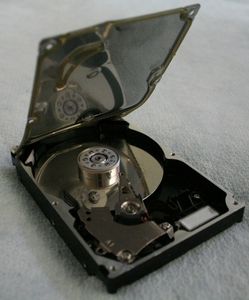Hard drives are a model of consistency, at least for the most part. Unfortunately, there will come a time when you face a fact of life with all hard drive technology – these are mechanical devices, and they will fail at some point. It typically is not a matter of if, but when. When your drive does fail, you may want to consider getting help from a company that offers free support like, yep, Hard Drive Recovery Associates. On the other hand, if you decide to press ahead on your own, at least consider these troubleshooting techniques before you do anything rash:
One of the common problems and major issues that ultimately result in hard disk problems is a clicking or ticking sound, which is typically sign of a gradually collapsing hard drive. In fact, if the drive is still functional, do your best to backup as much of it as you can, as the clock is ticking on the life of your drive.
If you don’t notice any aggressive sounds emanating from your hard drive there are certainly a few checks you can perform. There are seven of them:
- First, check for physical connectivity issues. Is the hard drive properly connected to the power supply? Is it connected into the computer with an appropriately linked ribbon (for IDE) or SATA cable? In the case of IDE hard drives, are the jumpers set up accordingly (this may not be a factor in computers 2008 and newer)? For SCSI hard drives, are the SCSI termination and ID set properly?
- Second, look over the BIOS setup. Does the BIOS detect your hard drive? If it does not, you may definitely have a physical drive problem.
- Third, did you recently experience a virus attack or perhaps install some malicious software? Does the drive have any boot sector viruses that you know of?
- The fourth phase is to assess the condition partition table. Using an old DOS startup disk, does FDISK locate an acceptable partition on the drive? If so, is it active? Consider using a program like Partition Magic or Acronis as an advanced scanning tool.
- Fifth check is all about formatting. Is the hard drive formatted correctly?
- Sixth is to look for drive errors. Is the external or internal error attributing to the read/write issues encountered on the hard drive problems? Is a specific error message coming up on the screen? Write it down.
- Seventh is your operating system: does the operating system provide a feature that analyzes the status of every external device connected onto the system? If yes, what is the condition or status displayed?
When checking all of these elements, one should realize that the process is time-consuming and labor-intensive. Alternatively, you can simply call our 24 hour help line with any questions you may have. At least one out of 12 customers that call end up having their data recovered absolutely free.

